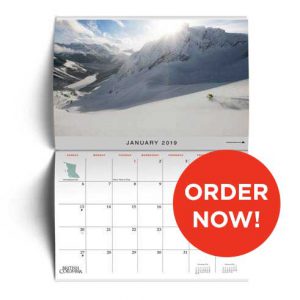
Sesquicentennial. There’s a word I don’t roll out every day. But this is a special occasion: as of 2008, we mark 150 years of being British Columbia.
Around the editorial office, we’ve pondered why, exactly, 1858 became the date to commemorate. Yes, that’s the year Queen Victoria dropped the weighty moniker on the newly formed colony of British Columbia (more on that inside this issue). But wouldn’t it have made more sense to choose 1866, when the separate colonies of Vancouver Island and British Columbia were merged into one—or 1871, when that single colony became a province of Canada?
No matter. It’s all history now.
As is much of this 150-themed issue. In the Due West section, we highlight the major sesquicentennial events planned for this summer, and profile the people and places whose destinies were cast by the 1858 Fraser Gold Rush—the catalyst that pushed England to declare B.C. a colony in the first place (more on that inside, too).
For a visual journey through the past century and a half, turn to “Our history in pictures,” a photo essay documenting B.C.’s development from 1858 to 2008. That’s followed by Daniel Wood’s “Fast boat to Hell,” a rafting adventure that plunges him into the notorious Hells Gate rapids—where explorer Simon Fraser dared not go 200 years ago.
And finally, for our Echoes department, Frances Backhouse has written a fascinating account of Chinook jargon, a hybrid language that evolved to facilitate trade between the 19th-century newcomers to B.C.’s shores and the aboriginal people who had lived there for millennia.
Several of our history stories include online sources for readers who may wish to learn more. One site that caught my interest—despite the rather dry title—is The Colonial Correspondence of Vancouver Island and British Columbia.
Dr. James Hendrickson and others at the University of Victoria have compiled an online archive of the writings exchanged between our early colonial governors and the home government in England, 1846 through 1871. These documents, Hendrickson notes, “constitute a most important source of primary information about the colonies.”
Judging by many of the letters, our governors’ main occupation was trying to pry open the colonial purse in London. Appeals were made for everything from stamps and stationery to—as Governor James Douglas outlined it in May 1863—an armed escort to safeguard the staggering amounts of gold being shipped south from the Cariboo:
About one Million of Dollars… have been realized by the Miners on Williams Creek during the winter months. The “Barker” claim alone is said to have produced 137,000 Dollars . . . and the “Hard Curry” Claim . . . no less than 900 lbs weight of Gold Dust within the six last months.
While the gold escort was granted, London officials were not always so generous. Just a year earlier, in June 1862, the Lords of Her Majesty’s Treasury took a tough stance on Douglas’s over-spending on the Cariboo Wagon Road to those very gold fields:
[The] Governor shall for the future keep strictly within the limits of the sums voted by Parliament… [If] His Grace’s instructions on this head shall be again disregarded, he must be prepared to be held personally responsible… and it will be Their Lordship’s duty, in future, whatever may be the consequence to the Colony, to refuse payment.
It’s remarkable that London officials could focus on B.C. as much as they did at the time, given their colonial agenda worldwide. Fresh out of battles with Russia in the Crimean War (1853-1856), Britain engaged in the Anglo-Persian War (1856-1857), suppressed an uprising against its rule in India (1857-1858), then threw its forces into the Second Anglo-Chinese War (1856-1860).
For a broader historical context, I recommend a fascinating website called HyperHistory (www.hyperhistory.com). Swiss-born Vancouver architect Andreas Nothiger has compiled 3,000 years of world history using interactive parallel timelines, lifelines, and maps. At a glance, you can see events occurring simultaneously around the world in the year B.C. was founded. It’s a must for history buffs—as is this special issue of British Columbia Magazine. Enjoy the look back.

